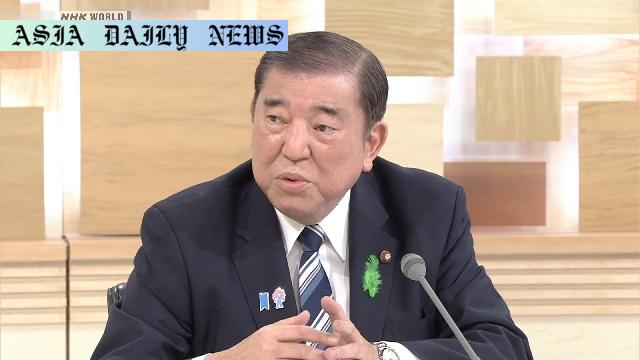Tariff Negotiations: Japan PM Ishiba emphasizes fair standards and mutual benefits in resolving trade barriers.

Background of Japan-US Tariff Negotiations
The ongoing tariff discussions between Japan and the United States have become a critical issue for both nations, encompassing economic relations, consumer safety, and trade barriers. Japanese Prime Minister Ishiba Shigeru has expressed the need for a ‘win-win’ solution, ensuring that both countries reach a mutually beneficial agreement. He has made it clear that the Japanese government is committed to maintaining fairness while addressing the concerns raised by the United States regarding trade imbalances and regulatory barriers. The negotiations have particularly focused on automotive imports and the importing of US agricultural goods, reflecting broader trade dynamics and economic strategies of the two countries.
Key Concerns for Japan in Tariff Discussions
One of the most pressing matters during these deliberations is the concern raised by the United States about the low number of American cars on Japanese roads. US President Donald Trump has reportedly voiced his frustration directly to PM Ishiba, citing Japanese automobile safety standards as a significant non-tariff barrier. Ishiba, however, argued that these regulations are essential for protecting Japanese consumers, given the unique traffic conditions in Japan. The Japanese government has pledged to examine the standards closely to ensure they cannot be criticized as unfair while maintaining the highest standards of safety for their citizens.
Agricultural Trade and Food Safety Standards
Another pivotal issue is the demand from the US for Japan to import more American agricultural products. While PM Ishiba acknowledged the economic significance of this request, he emphasized that food safety standards must not be compromised. The Japanese government has reiterated its zero-tolerance policy for any dilution of food safety to meet trade demands. This strong stance underscores the government’s commitment to prioritizing public health, even as it navigates complex trade negotiations with its key ally.
Separating Security from Trade
In an interesting stance, PM Ishiba has underscored the importance of keeping security discussions separate from trade negotiations. While the US may view security partnerships as leverage in economic discussions, Ishiba made it clear that Japan’s security policies are focused on self-reliance and separate decision-making. This distinction ensures that national security issues are not conflated with economic interests, fostering a more pragmatic approach to diplomacy in both spheres.
Moving Forward with Collaborative Solutions
PM Ishiba remains optimistic about finding a resolution and has maintained open lines of communication with President Trump. He has stated that an in-depth discussion will guide their final decision, and he plans to visit the United States to further discussions at an appropriate time. This collaborative approach could pave the way for sustainable economic cooperation and a stronger bilateral relationship between Japan and the United States.
Commentary
Importance of Fair Trade Standards
The ongoing discussions between Japan and the United States highlight a significant issue in international trade: the balance between national interests and global collaboration. One of the standout features of Japan’s approach has been its insistence on fair trade while remaining open to addressing concerns raised by its trading partner. This measured approach underscores Japan’s commitment to maintaining its high standards, whether in automotive safety or food safety, even in the face of mounting pressure. Such consistency not only protects Japanese citizens but also sets an example for other nations grappling with similar trade dilemmas.
Challenges in Global Auto Trade
The concerns raised by the US about Japanese automobile safety standards reflect broader challenges in the global automobile trade. Standards often differ significantly between nations, influenced by unique traffic conditions, consumer expectations, and regulatory frameworks. While it may appear to the US that these regulations act as barriers, they serve a critical purpose in Japan’s context. Navigating such differences requires not just economic acumen but also cultural sensitivity and mutual understanding, traits that PM Ishiba seems keen to foster in his negotiations with President Trump.
The Broader Implications of Food Safety
Japan’s firm stance on food safety in the face of pressure to increase US agricultural imports sends a powerful message about the non-negotiability of public health standards. In an era where trade often overrides domestic priorities, Japan’s example is a reminder of the importance of placing citizen welfare above purely economic considerations. This approach not only strengthens consumer trust but also enhances the credibility of a nation on the global stage, as it aligns economic practices with ethical values.
Conclusion: A Balance of Interests
At its core, the Japan-US negotiations reveal the delicate art of balancing national interests with the dynamics of a globalized economy. Overcoming these challenges will require both nations to adapt and compromise, aiming for a solution that benefits their citizens while fostering stronger bilateral ties. As PM Ishiba prepares for further discussions, his focus on fairness, safety, and collaboration sets a hopeful tone for the future of Japan-US trade relations.


